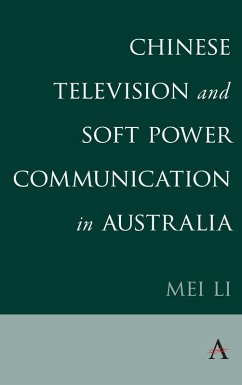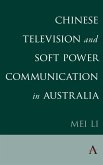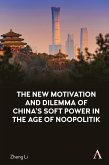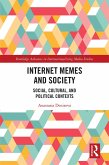In the context of China's ascendancy, the world watches and listens. China wants to project a soft power image. One channel for its soft power communication - about its success and international cooperation - is international broadcasting. 'Chinese Television and Soft Power Communication in Australia' discusses China's soft power communication approach and investigates information handling between China and its targeted audiences in the eyes of key influencers - intermediate elites (public diplomacy policy elites in particular) in China and Australia. Drawing on the case of the state-owned broadcaster CGTN - viewed by China as an essential soft power tool for framing its voice - the book examines empirically the reception to China's soft power messaging by Australian audiences and the factors underpinning its reception.
The book provides a holistic, systemic evaluation of China's soft power messaging seen as part of its power portfolio and what this means to the world order. Through media frame analysis of CGTN's framing of China's most ambitious and comprehensive initiative - the Belt and Road Initiative - and interviews with intermediate elites in China and the typical case of a Western target audience in Australia, it presents an in-depth theoretical discussion of the mechanisms of China's communication approach through a soft power lens. It also reflects on an exploration of journalistic operations within CGTN (with staff from several professional cultures) and a systemic test of how successful/unsuccessful China's soft power message projection is in terms of congruence between projected and received frames, as a pivotal factor of its power status.
The book provides a holistic, systemic evaluation of China's soft power messaging seen as part of its power portfolio and what this means to the world order. Through media frame analysis of CGTN's framing of China's most ambitious and comprehensive initiative - the Belt and Road Initiative - and interviews with intermediate elites in China and the typical case of a Western target audience in Australia, it presents an in-depth theoretical discussion of the mechanisms of China's communication approach through a soft power lens. It also reflects on an exploration of journalistic operations within CGTN (with staff from several professional cultures) and a systemic test of how successful/unsuccessful China's soft power message projection is in terms of congruence between projected and received frames, as a pivotal factor of its power status.
Dieser Download kann aus rechtlichen Gründen nur mit Rechnungsadresse in A, D ausgeliefert werden.









